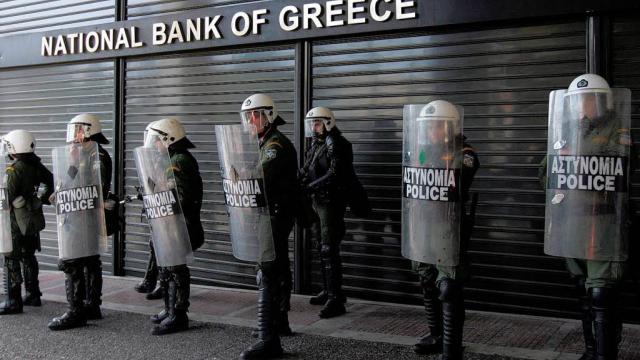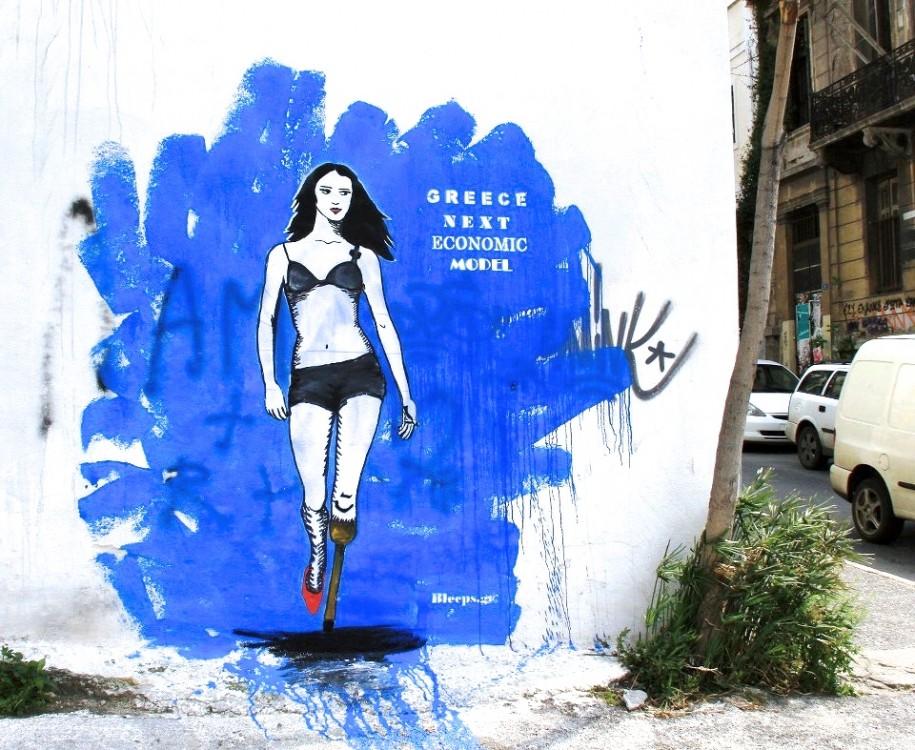
On Monday morning Greeks will find their savings blocked and their banks closed for a week following a fateful weekend that has shaken Europe’s single currency.
The Greek government decided on Sunday night it had no option but to close the nation’s banks the following day after the European Central Bank (ECB) raised the stakes by freezing the liquidity lifeline that has kept them afloat during a six-month run on deposits.
The Athens Stock Exchange will not reopen on Monday either. The dramatic move, after 48 hours of sensational developments in Greece’s long-running battles with creditors, was sparked by the country’s prime minister, Alexis Tsipras’s Friday night call for a referendum on its creditors’ demands. That prompted finance ministers of the eurozone to effectively put an end to his country’s five-year bailout by the International Monetary Fund, the ECB and the European commission.
In a brief, televised address to the nation, Tsipras threw the blame onto the leaders of the eurozone. But he did not say how long the banks would remain shut, nor did he give details of how much individuals and companies would be allowed to withdraw once they reopened.
It later emerged that the banks would be kept shut until after the referendum on July 5 and there were reports that the withdrawals from cash machines would be limited to €60.
The prime minister said that Saturday’s move by the eurozone’s finance ministers to halt Greece’s bailout program was unprecedented. He called it “a denial of the Greek public’s right to reach a democratic decision."
Tsipras added that the finance ministers’ initiative had prompted the ECB to curb its assistance, forcing the government to take the steps that it had. He said he had once again appealed for an extension of the bailout until after the referendum, on July 5, sending his proposal to the president of the European council, Donald Tusk, the leaders of the 18 member states of the single currency, the commission and the ECB.
As fears spread through Sunday that capital controls would need to be put in place, growing numbers of depositors lined up at ATMs, even in affluent city areas, to withdraw what cash they could.
The country’s plight deteriorated sharply on Friday night when Tsipras put his country’s future in the balance by suddenly calling a referendum and arguing robustly for a rejection of the price set by his creditors for saving Greece, at least for a few more months. This Sunday’s vote will ask Greeks whether they approve or disapprove of the last offer tabled by the creditors before the negotiations broke down.
But during a marathon parliamentary debate that ended in the early hours of Sunday morning, opposition leaders argued that it was, in fact, a vote on whether Greeks wished any longer to be part of the eurozone. It will be Greece’s first referendum since the country voted to abolish its monarchy in 1974.
The European commission said on Sunday for the first time in the crisis that it wanted to offer Greece debt relief, Tsipras’s central demand during the five months of stalemated talks. Reports from Berlin said that Angela Merkel and François Hollande shared that view.
But the potential concession appeared to come too late to prevent growing chaos in Greece – and sparked concerns across the Atlantic. Barack Obama was said to have called Merkel to urge her to take action. Jack Lew, the U.S. Treasury secretary, urged creditors to offer debt relief to Greece.
Financial analysts will be watching the impact on the markets, which have not yet had the chance to react to the events of the last 48 hours. Mario Draghi, the president of the ECB, tightened the screws somewhat on the country.
The governing council of the ECB decided to freeze emergency liquidity assistance to the Greek banks, the lifeline that is keeping the national financial system functioning. The ELA was capped at last Friday’s level of €89bn. It meant that the banks could continue to function, but the draining of money as people flocked to the ATMs to retrieve their savings also meant they would run out of money that could not be replenished by the central bank.
“We continue to work closely with the Bank of Greece,” Draghi said.
Greece’s financial stability committee, which includes the finance minister, Yanis Varoufakis, and the central bank governor, Yannis Stournaras, met on Sunday evening to discuss Greece’s rapidly shrinking options. The high-level political confrontations on Friday and Saturday produced the greatest uncertainty over Greece and in the eurozone in the five-year debt saga.
The fall-out from the collapse of negotiations and the calling of the referendum brought recrimination on all sides and predictions of gloom.
The German finance minister, Wolfgang Schäuble, said he was “perplexed and depressed” by developments. Jeroen Dijsselbloem, the Dutch finance minister who heads the committee of eurozone finance ministers, said that with his referendum call, Tsipras was thrusting the country into a mess from which it would struggle to recover.
“We are millimetres away from the total collapse of the Greek financial system,” warned Herman Van Rompuy, until last year the president of the European Council and heavily involved in years of Greek rescue negotiations. “It’s actually suicide that’s taking place in Greece right now.”
The restrictions being imposed are anathema to Tsipras’s radical left-led government – all the more so since it desperately needs to keep public opinion on its side ahead of the referendum.
Varoufakis told the BBC in a Sunday interview: “Capital controls within a monetary union are a contradiction in terms.” But he was party to Sunday night’s decision.
In the early hours of Sunday, parliament voted 178 to 120 in favor of holding the referendum. Embarrassingly for the government, the neo-Nazi Golden Dawn movement joined Tsipras’s Syriza party and its populist right-wing coalition partner, ANEL, in backing the proposal.
By Sunday evening, however, it had not received the necessary endorsement of Greece’s president, Prokopis Pavlopoulos.
According to two polls published on Sunday, Tsipras faces an uphill battle to secure the rejection he has indicated that he favors. One in the right-leaning tabloid Proto Thema found 57% of those interviewed favored acceptance of the creditors’ latest offer. Another in the centre-left To Vima put support at 47%.
Originally published by The Guardian

3 WAYS TO SHOW YOUR SUPPORT
- Log in to post comments













